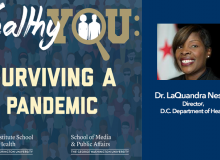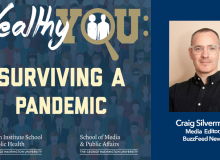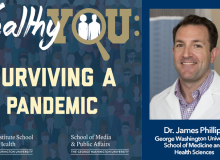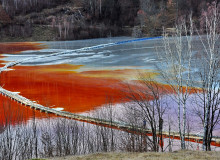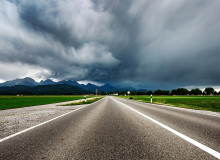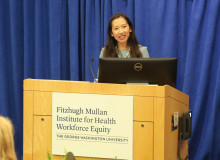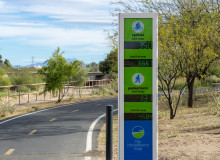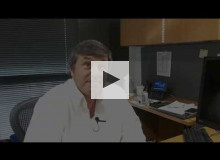Public Health
Polluted air and rivers have acute local health effects and changing rainfall and temperature patterns cause global disruptions in supplies of food and clean water. Learn what is being done to mitigate the impact.
Founding Director, Planet Forward
On this week's Healthy You podcast, host Frank Sesno speaks with Dr. LaQuandra Nesbitt, director of the D.C. Department of Health. She shares why D.C.'s location makes reopening more complex than other jurisdictions.
Founding Director, Planet Forward
One of the world’s leading experts on online misinformation, media editor for BuzzFeed News, Craig Silverman joins the podcast this week with tips on finding credible sources.
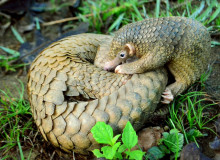
Photographed in the forests of Palawan, a Philippine pangolin pup nudges its mother, rolled up in a protective ball. (Gregg Yan/Creative Commons)
Planet Forward Senior Correspondent
Pressuring governments to issue bans and closures of wet markets could prevent the emergence of infectious disease. But it does not solve the widespread issue of bushmeat circulation between hunters and their families.
Founding Director, Planet Forward
Dr. James Phillips, chief of disaster and operational medicine at the George Washington University School of Medicine and Health Sciences discusses the reality of reopening the country without widespread testing available.
Planet Forward Senior Correspondent | Cornell University
While much about the future remains uncertain, we do know this is not the last pandemic we'll face. And if we want to prevent future pandemics, we need to focus on the impact of humans on our environment.
Founding Director, Planet Forward
How can we apply the lessons we are learning now to the next looming threat — climate change — recognizing that it will, by necessity, take a back seat until the current health emergency and economic crisis subside?
George Washington University
Even if we can't always make it outside, there are proven ways we can keep our spirits up during physical distancing.
Founding Director, Planet Forward
Listen to Planet Forward founder Frank Sesno host a special COVID-19 series, "Healthy You: Surviving a Pandemic," in partnership with the George Washington University Milken Institute School of Public Health.
Planet Forward Senior Correspondent
Green spaces not only help cities mitigate and adapt to climate change; they can help residents cope with the shock of COVID-19.
Planet Forward Correspondent | George Washington University
For GWU Professor Peter LaPuma, the crises he teaches about in his environmental health classes aren't just test fodder — they're dilemmas he prepares for every day. Samantha Ross and Lizzie Stricklin spoke to Professor LaPuma to learn more.

